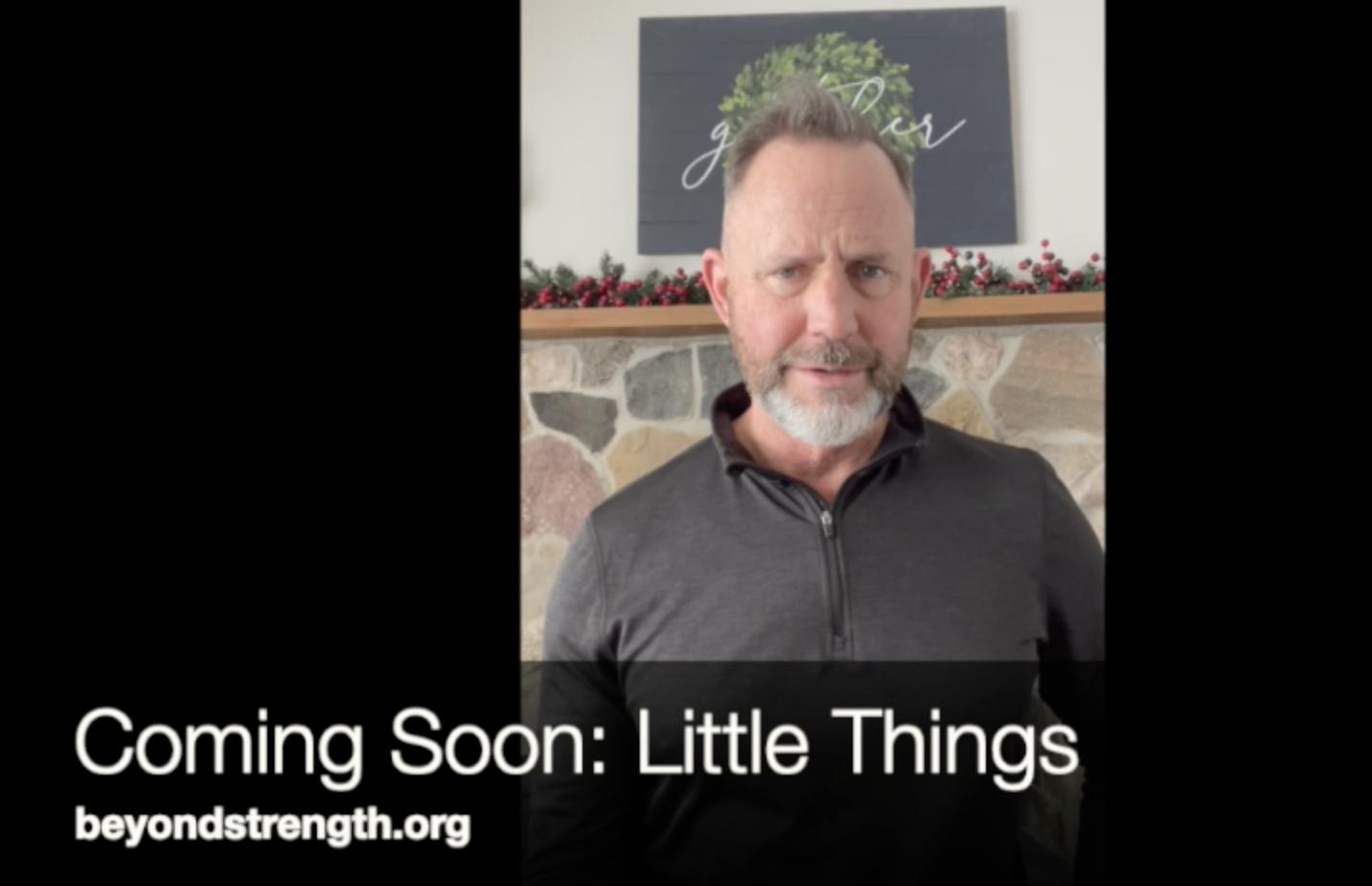Have you ever considered how much little things really matter? With a disc-jockey father, I heard a lot of music growing up. One 1950s song I remember resurged a few decades later when it became the jingle for White Cloud toilet paper: Little Things Mean A Lot. It’s tough to argue against quality rumpus roll being a pretty important little thing! Ironically, this subject is much bigger than I anticipated, requiring two parts to accommodate all my blathering.
In chapter three of his epistle, James analogues four little things that help introduce this subject, each capable of immense impact despite its size: a bit, a spark, a rudder, and the human tongue. The entire horse is turned by bit and bridle; great forests are set ablaze by a tiny spark; a wee rudder steers a massive ship. And though a small part of the body, James’ passage focuses on the tongue because of its power to both lift up or tear down, praise or curse, harm or heal. Described as “a world of evil among the parts of the body”, the tongue is capable of setting “the whole course of one’s life on fire” (v. 6).
The connotation of setting fire no doubt refers to the tongue’s destructive power; and scorched eyebrows betray those who believe words don’t hurt. Fiery furnace or not, looking back over the years, little things indeed loom large when the dots of your past are connected. Ostensibly insignificant words, incidents, decisions, choices, and (apparent) coincidences are written seamlessly into the script of your life today.
Incidental Interconnectedness
Had I not met my wife at a friend’s wedding back home, I would have probably married someone from Texas. Had we not moved back during harvest, our friend would not have hired me to drive his grain truck that season, so pregnant and jobless, we would have moved back to Fort Worth. Were money not an object, I wouldn’t have turned down a local job for work two hours away. Had I not taken that distant job when I did, I would not have met the friend who introduced me to the employer I recently retired from. But before that came to fruition, a job closer to home emerged. So good a job it was, I intended to forego my friend’s recommendation. However, were it not for a denied residency policy exception, I would never have reconsidered my friend’s introduction, nor followed him into service. Had even the slightest circumstance been different, I would have never met that friend, gained crucial insight into the hiring process, attended the same recruit school, nor served with him an entire career.

Maybe things viewed only in the moment aren’t so incidental after all.
Those are just the ‘big’ little things most suited to prose…I could write volumes of other incidental interconnectedness for this one area of my life, alone. Unfortunately, there’s an equally illustrative parallel series of incidents, decisions, choices, and coincidences much less flattering. For not only have little things led to a blessed career and enjoyable family life, there have also been choices and other circumstances along the way with huge and lasting implications that have hurt those close to me.
Even Small Acts of Kindness Provide Big Comfort in the Midst of Pain
In his most recent 365-day devotional, David Jeremiah retells the story of a waitress who took time to slip into a booth and chat with an elderly woman. It was the woman’s first time dining alone since the death of her husband. This waitress’s “…small act of kindness, which cost her nothing but of few moments of her time, encouraged and brightened the day of someone who was hurting.”1
To be sure, losing a loved one is in a category all its own. God doesn’t guarantee we will have trouble-free lives, nor will we always have answers to why evil prevails, the wicked prosper, or bad things happen to good people. Pain is the great equalizer, and life has a way of making sure few are overlooked.
Maybe you have been persecuted, falsely accused, conspired against, had your intentions misinterpreted, or been let down by your friends. All are painful and not such little things. But God reassures us that he is with us in our troubles, and perhaps a few little things can provide an added measure of comfort during these times.
A few small things I did recently helped me through a very trying time of feeling discouraged, unjustly persecuted, and abandoned by friends and coworkers. I didn’t ascend a mountain to visit some mystic monk, drown my sorrows in drunken stupor, speak ill of anyone, or conspire to ‘get even’. Instead, I acknowledged the pain, let go, prayed, looked for opportunities to encourage others, and chose the same few specific verses to read every day until I felt better. These ‘little things’ made a huge difference.
Still unconvinced? Here are some other little things that mean a lot.
Getting out of bed and showing up for work every day; a positive attitude; giving compliments; gratefulness; treating people with dignity and respect despite your differences; asking people how their day is going; saying “please”, “thank you”, “I love you”, and “how can I help” more often; holding hands; writing and sending thank-you cards; leaving notes for your spouse or children wishing them a good day or welcoming them home. Research suggests a simple hug or touch may reduce stress. Personally, a hug or touch on my arm or across my shoulders provides immediate stress relief and calming effect. This is not true of everyone, especially those having experienced abuse. Know your audience, for the little thing means a lot theory applies equally to each.
Little things mean a lot. I hope you’ll stick around for Part Two!
Get Strong. Be Strong. Stay Strong.
1Jeremiah, David (2022). Moments with God. San Diego, CA: Turning Point.


























